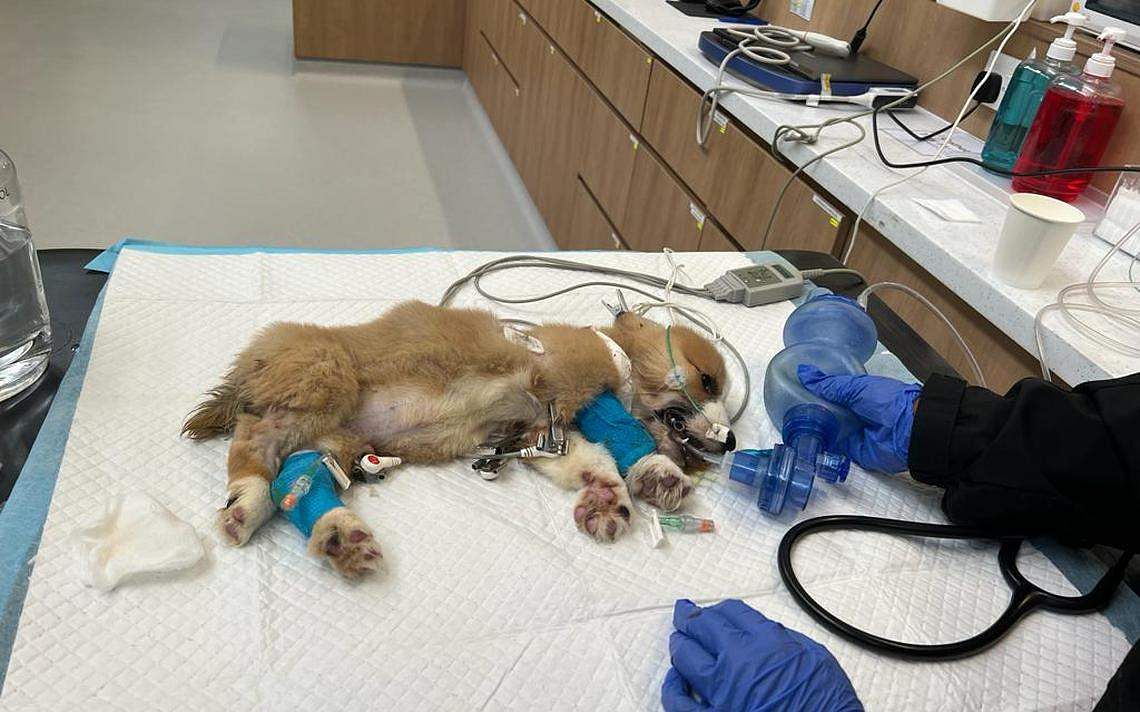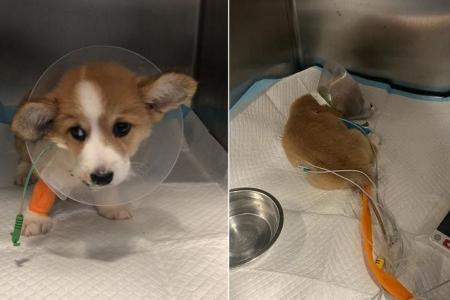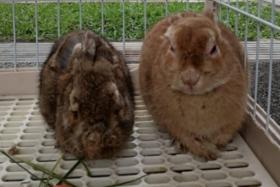Owner traumatised by death of corgi puppies, AVS investigating
The Animal and Veterinary Service (AVS) is investigating a case of two corgi puppies that were bought from an alleged unauthorised seller and died within a week of their arrival in Singapore.
The authority is also in contact with the buyer.
The buyer, Ms Chen, who declined to give her full name and occupation, said she contacted the seller from Malaysia on Oct 21 via social media platform Xiaohongshu. She paid $6,400 for both dogs, including transportation fee and food.
Ms Chen, who is in her late 20s, told The Straits Times that the money was transferred to a Malaysian bank account registered to a company called World Pets Kennel.
She was told that the dogs were born on Aug 28, and had received one vaccination jab. Ms Chen was also told that microchips for the puppies were available but had not been inserted in the dogs yet and could be done together with their second vaccination.
“I asked if all of this was legal and (the seller) assured me that it was,” said the first-time dog owner.
Less than a week later, on Oct 27, the puppies were delivered to Ms Chen’s home. The food and microchips were missing, and she was told they would be delivered the next day.
However, on Oct 28, the dogs fell ill. They had diarrhoea, and one puppy began foaming at the mouth.
Ms Chen took them to a vet, and they both tested positive for canine parvovirus, a highly contagious viral disease that affects animals’ gastrointestinal tracts.
They were hospitalised and given plasma transfusions, but the puppies, both male, succumbed to the illness – Waffles died on Nov 2, and Lucky Boy on Nov 3. Ms Chen said she spent $12,000 at the vet.
“It was really very traumatising, and I could not even sleep properly,” she said.
Ms Chen added that the seller denied any responsibility, refused to compensate her and could not produce any documentation to back up claims that the puppies were legally imported into Singapore.

The seller did not respond to ST’s calls or messages.
Pet store operators say there were plenty of red flags that indicated the puppies could have been illegally imported.
A corgi puppy costs at least $5,000 each at local pet stores.
Wag A Tail store manager Celest Tay said there is no such thing as microchipping a dog after it arrives in Singapore.
Ms Tay said a microchip is used to identify a specific dog during various stages of the importation process.
“Some breeds, like golden retrievers, have puppies that look very similar to one another. Without a microchip, how can they be distinguished from one another?” she said.
According to AVS‘ website, Malaysia is a Category D country of export because of its rabies risk.
This means that dogs imported from Malaysia must have valid vaccination against rabies, using a vaccine that is acceptable to AVS, at least six months before export.
A dog must have a blood sample taken and tested for acceptable rabies antibody levels at least one month after its vaccination. It must also be quarantined in an AVS facility for 30 days before it can be released to the owner.
Ms Tay said that rabies vaccination is usually given to puppies only when they are at least 12 weeks old.
“With the above protocol and timeline, a puppy legally imported from Malaysia can and will reach the new owner’s home only at 11 months old if the schedule is followed without hiccups. The two puppies do not look like they are 11 months old,” said Ms Tay, who has seen photos of the dogs in earlier media reports.

Ms Kelsey Lee, operations manager of 2Fur7 Pet Store, said a dog could be an illegal import if the exporter does not help the buyer with pet licensing. An imported dog has to be registered to a licensed pet business in Singapore or its buyer before arriving here.
AVS group director Jessica Kwok said: “The imported dog should also be accompanied by a valid import licence, dog licence and veterinary health certificate certifying that the dog fulfils the required veterinary conditions for import, is healthy and free from any clinical sign of infectious disease and fit for travel at the time of export.”
From 2020 to 2022, AVS received fewer than 10 feedback cases a year on illegally imported dogs. These dogs were of varying breeds, with no observable trend.
AVS strongly encourages prospective pet owners to adopt their pets from animal welfare groups or buy them from licensed pet shops.
They should not buy pets from unknown sources, including those on online platforms, as the health status of these animals is unknown. Imports may infect local animals with diseases, including exotic ones and those which could pose a risk to public health.
“These animals could be smuggled and/or not bred according to the standards of animal health and care which AVS imposes on licensed breeders and pet shops. The well-being of these animals is also often compromised by poor conditions during the smuggling process,” added Ms Kwok.
Get The New Paper on your phone with the free TNP app. Download from the Apple App Store or Google Play Store now



